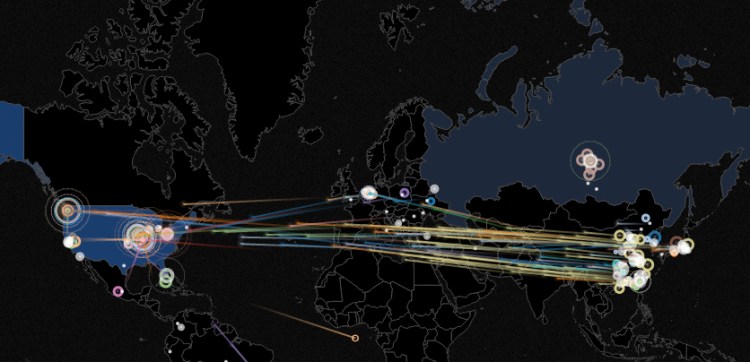Chinese authorities condemned the concept of cyber attacks today but insisted there was no evidence that North Korea was behind the Sony hack.
The statement effectively dashed any hopes that the breach of Sony’s network would be an opportunity for the U.S. and China to find some common ground on an issue that had been a growing source of tension between the two countries.
“Before making any conclusions there has to be a full (accounting of) the facts and foundation,” foreign ministry spokeswoman Hua Chunying told Reuters in an interview. “China will handle it in accordance with relevant international and Chinese laws according to the facts.”
Last week, the FBI claimed it had proof that North Korea was behind the hack. That attack exposed a huge stash of internal Sony documents and caused the studio to at least temporarily delay the release of “The Interview,” a comedy about a plot to assassinate the North Korean leader.
Over the weekend, President Obama said the incident did not amount to an act of war but rather was “cyber vandalism.” He also promised that the U.S. would respond “proportionally, and we will in a manner and place that we choose.”
For its part, North Korea has also denied playing any part in the attack.
The U.S. reportedly asked China for help in blocking North Korea’s ability to launch attacks. But instead of assistance, China appears to be giving its ally, North Korea, the benefit of the doubt.
It was no doubt an awkward conversation between two rivals that are engaged in near-open cyber warfare against each other. To get a visual sense of the ongoing attacks between China and the U.S., check out this mesmerizing real-time map of attacks from Norse, a U.S.-based security company.
Though the rankings shift, the U.S. and China are generally the top two in terms of attacks, and the U.S. is typically number one in terms of being the target.
U.S. corporations have complained about being under siege from China’s state-sponsored hackers for years. Earlier this year, a federal grand jury indicted five officers of the Chinese Peoples Liberation Army on charges of computer hacking and spying.
Indeed, before the Sony incident, it was the prospect of cyber attacks from China that was making Hollywood nervous.
According a report last March from FireEye, a San Jose cyber security company, researchers in the company’s Mandiant Intelligence Center (part of FireEye labs) had identified at least one hack of an entertainment company that it traced to China.
“Mandiant has observed high rates of China-based cyber intrusions against industries that China’s state authorities consider strategic — and entertainment is likely no different,” the report said. “We expect China to increasingly target the film and entertainment industry.”
In part, FireEye believed China’s massive investment in its own film industry was motivating it to conduct more corporate espionage. But also, the country was seeking to keep tabs on projects that might impact its own image.
Indeed, a group that was making a documentary about Tibet had previously accused the Chinese government of attempting to disrupt the project through cyber attacks. According to an account written by the creators of “State of Control” in the Hollywood Reporter:
“Our e-mail contact with producers in the U.S. and Europe had triggered an outbreak of computer viruses that had infected their systems and phones, deleted e-mails and crashed websites. … Upon returning to the U.S., the extent of the cyber-assault on the production began to reveal itself. Producers in Amsterdam, Los Angeles and Atlanta all had their computers and e-mails hacked. The malware in the Atlanta computer was evaluated by an IT expert who determined that it originated from an IP address in China. One producer was so startled by the attack on his computer that he backed out of the project altogether.”
Of course, China’s box office has become so critical to Hollywood, filmmakers are now using more caution when it comes to saying or doing anything critical.
Most famously, the remake of “Red Dawn” had China being the bad guy, replacing the Soviet army that invaded in the original 1980s version. But after production, worried about possible backlash in China, according to the Los Angeles Times, filmmakers digitally erased Chinese flags and symbols and replaced them with a country they figured was less of an economic and cultural threat: North Korea.
VentureBeat's mission is to be a digital town square for technical decision-makers to gain knowledge about transformative enterprise technology and transact. Learn More

